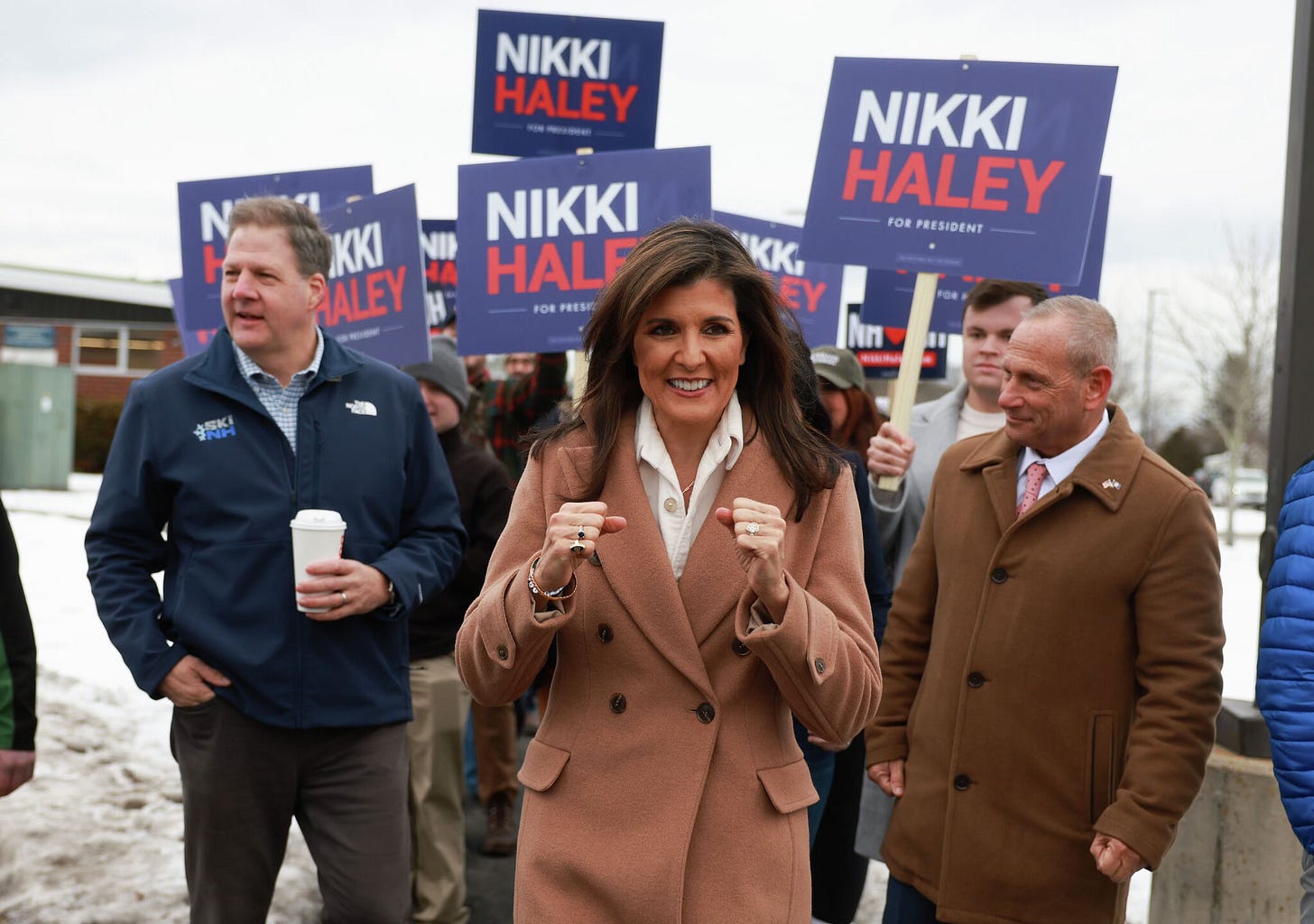Electability and Democracy
Concern about electability is annoying. It's also vital for democracy.
Loyal readers will note that I get very annoyed about obsession over candidate “electability” in nomination contests. It is a very fraught and flawed concept, for reasons I’ll get into below. But it’s also coming up a lot in some interviews I’ve done over the past few years with local Republican leaders. The more I review this evidence, the more convinced I am that a concern about electability a) is vital to democracy; and b) is the main fault line within the Republican Party right now.
The problems with the concern about electability are many. One is that we rarely have very good evidence about which candidate is more electable than any other. We’re going with gut feelings, which can be heavily informed by media coverage and stereotypes and prejudices and are basically impossible to disprove. When we dismiss a candidate in a primary contest because we’re convinced they’re not electable, we’re not saying whether we like that candidate; we’re guessing whether working class voters in Michigan and Wisconsin will like them. It’s very imprecise, it can be a cudgel to push women and non-white candidates out of races, and it steers people away from candidates they actually want.
Okay, all that said, electability isn’t nothing. Parties actually do want to win, as well as to govern. And so they try to find nominees who will deliver on things the party cares about but also seem to have an ability to win elections. If they have polling evidence or past performances to consider, it’s usually of value to at least consider that.
Taken further, a belief in electability is a bow to democracy. It is an acknowledgement that if you do a poor job picking a nominee, you could lose. It’s an admission that losses happen, they are legitimate, and they are at least a little bit in your power to affect. To simply blow off concern about electability is to say, one way or another, you’re winning this thing, regardless of what voters want. That, to put it mildly, is not healthy for a democracy.
Going through some interviews I did with local Republican leaders in Iowa and New Hampshire over the past few years, I noticed an interesting trend. Back in 2022 and 2023, Republicans had a wide range of views about whether Trump should be their 2024 nominee. Some of the people I talked to really didn’t want Trump to be the nominee and thought he would lose to Democrats if he tried. Some remained deeply committed to Trump and wanted to see him get nominated again. And in the middle was a group that very much liked Trump, but thought he carried a lot of baggage and wanted to consider a different nominee.
What stood out in the conversations is that those who were most supportive of Trump as the 2024 nominee were also the boldest in declaring that there had been fraud in 2020. When I asked them if they had concerns about re-nominating Trump because of polls showing him under-performing or because of the results of 2020, they often said that they simply rejected the concept of electability, basically said that Trump had already disproven such concerns when he ran in 2016, and insisted that the 2020 election was stolen from him.
I looked at this more systematically through the survey I did of county chairs back in February of 2023. That survey consisted of 187 Republican county chairs from all across the country. At that time, a bit less than half of my respondents said that they were considering supporting Donald Trump.
Keep reading with a 7-day free trial
Subscribe to Tusk to keep reading this post and get 7 days of free access to the full post archives.





